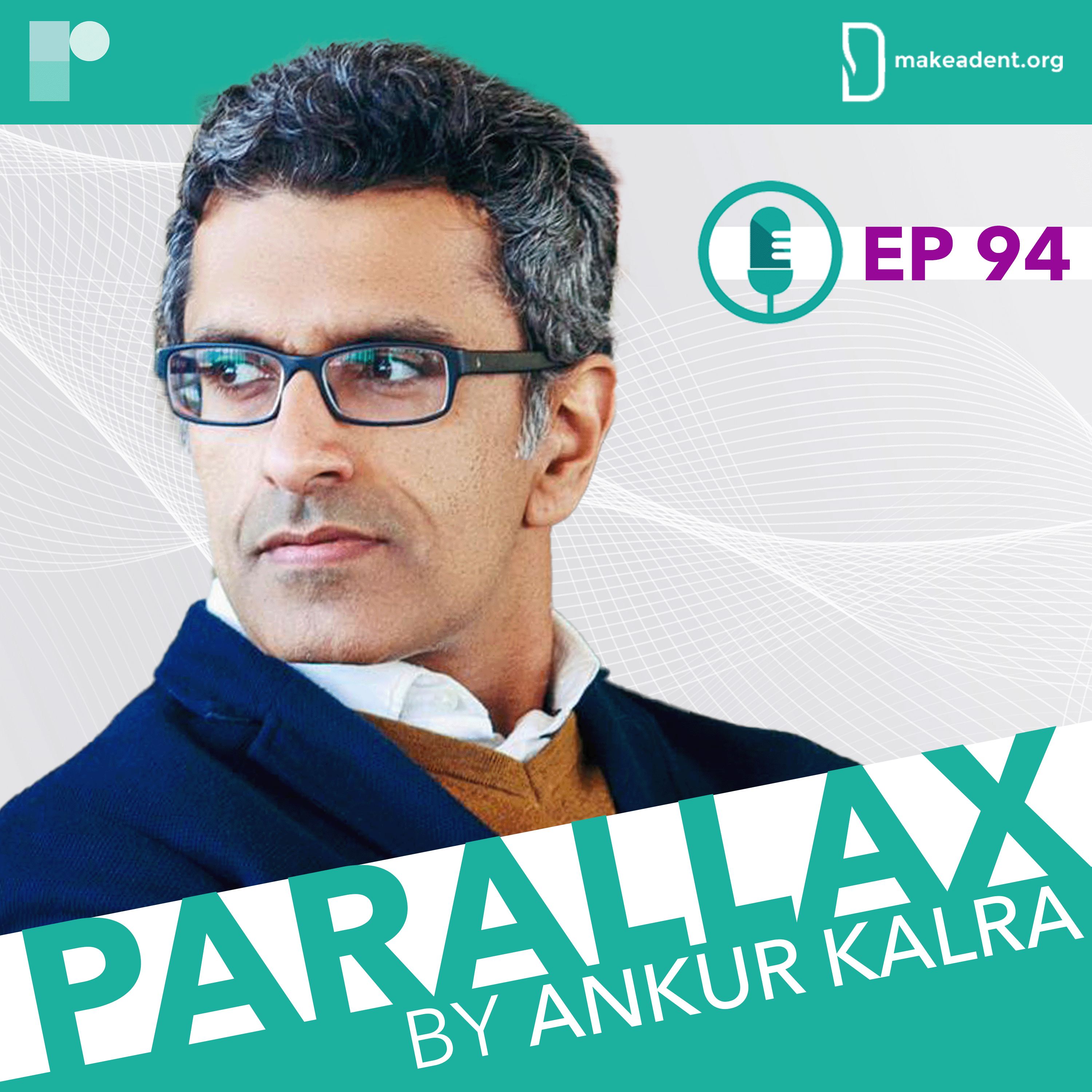
“You should neither take the outcome personally nor fall into the trap of thinking that doing nothing better.”
In this special episode of Parallax, we bring you Dr Ankur Kalra's thought-provoking lecture delivered at the IU School of Medicine Department of Anaesthesia Grand Rounds and introduced by Dr Nandan Anavekar.
In this episode, Dr. Kalra explores the intersection of spirituality and healthcare, encouraging us to reflect on its significance for both patients and providers.
Dr. Kalra begins by defining spirituality and highlighting its interconnectedness with patient care and the broader concept of life. He invites us to think about the various mechanisms behind spiritual experiences and practices, sharing his own personal journey with meditation. Examining studies on the impact of meditative practices like yoga and mindfulness on heart outcomes, he sheds light on their place in healthcare.
Delving into his experiences as a physician, Dr. Kalra presents two patient cases, illustrating how he navigates disparate outcomes. Drawing from Eastern perspectives, Dr. Kalra offers insights from the Bhagavad Gita to encourage a re-evaluation of medicine beyond metrics and focusing on the effort invested in care. He raises important questions about leading a mindful life and the challenge of remaining unattached to outcomes in a metric-driven healthcare system.
What does spirituality mean in the context of healthcare? How can physicians take control of their mindset? And what does the data reveal about the benefits of mindfulness in patient care?

This series is supported by an unrestricted educational grant from Bristol Myers Squibb. Please see www.camzyosrems.com for important safety information.
This content is intended for US-based physicians.


The charity organisation, Women as One is an agent for women and men to be part of medicine that is built on talent, rather than a privilege. Roxana and Ankur discuss the role of mentorship and family-friendly work environment in mending the broken house of cardiology. Roxana talks about the practical tools that are available for women to take the next steps in their career and achieve their goals.

Dr Kalra asks Dr Mauri about early influences and her traineeship with legendary interventionalists, the late Donald Baim and Richard Kuntz. Dr Mauri talks openly about her decision-making process and the importance of selecting your priorities and committing to them. Ankur asks Laura about her decision to go into industry. Laura shares her thoughts on medical innovations and meeting urgent needs with unique perspectives.
What is Dr Mauri’s advice for a young cardiologist? How did she balance research and patient care? What are the questions that helped her decision making? How does Dr Mauri think about innovations in medicine?

Brigham and Women’s Hospital’s Health Equity Committee decided to confront the status quo by asking: How is racism on a structural level present within our walls?
Ankur Kalra’s guests Michelle Morse (Founding Co-Director of EqualHealth and Assistant Professor at Harvard Medical School) and Lauren Eberly (Cardiology Fellow at the University of Pennsylvania) are co-authors of a retrospective study that demonstrated what had previously only been observed: That black or brown heart failure patients ended up in general medicine rather than specialised cardiology services. Following the publication of the study in November 2019, the Health Equity Committee started to roll out anti-racism trainings and to work on objective admission guidelines to mitigate biased behaviours.
Aarti Bhatt (Assistant Professor of Medicine at the University of Minnesota), member of the Minnesota chapter of Campaign Against Racism, talks about their initiative to support projects that have a positive impact on local communities on a global scale.

In this week’s Parallax, Dr Kanaa’N, the director of the program, and Dr Lahorra, chairman of the Heart, Vascular & Thoracic Department of Akron General introduce the listeners to the foundations of their program and the paradigm shift brought by TAVR.

Ankur Kalra asks Grant W Reed, Director of the Cleveland Clinic’s STEMI program, to reflect on the actions they took and the challenges of delaying cardiovascular procedures in the wake of the coronavirus pandemic. Dr Reed offers insight on the factors that influenced the Cleveland Clinic’s STEMI policy for COVID-19. Ankur and Grant discuss the triage considerations for patients with structural heart disease and the steps the clinic took to protect its healthcare workers.





